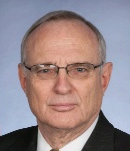By Ken Camp
Baylor University President Ken Starr, Pastor Rick Warren of Saddleback Community Church in Southern California and Russell Moore, president of the Southern Baptist Convention’s Ethics & Religious Liberty Commission, joined a call for a national strategy to address “international religious persecution that threatens people of faith worldwide.”
The three Baptist leaders were among more than 30 religious leaders, scholars and public policy analysts signing a letter July 14 to Senate Majority Leader Mitch McConnell, Speaker of the House John Boehner, Senate Minority Leader Harry Reid and House Minority Leader Nancy Pelosi urging Congress to give greater authority to the ambassador-at-large for international religious freedom.
“We are witnessing a tragic, global crisis in religious persecution, violence and terrorism, with dire consequences for religious minorities and for the national security of the United States,” the letter stated.
The group cited a Pew Research Center report that more than three-quarters of the world’s people live in countries with severe restrictions on religion.
The letter noted with alarm increasing anti-Semitism in the Middle East and Europe; violence against Christians in the Middle East, South and East Asia and Sub-Saharan Africa; and increased persecution of Muslim minorities and disfavored members of Muslim majority communities.
“Indeed, religious minorities the world over are suffering unjust discrimination and unconscionable persecution,” the letter stated. “But the catastrophic state of international religious freedom affects more than the victims. It undermines the national security of the United States.”
“Without religious freedom, aspiring democracies will remain unstable,” the signers said. “Economic growth and development will be more difficult to achieve. The advancement of the rights of women and girls will continue to be obstructed. Perhaps most important of all, religious terrorism will continue to be incubated, nourished and exported.”
 The group voiced support for David Saperstein, ambassador-at-large for international religious freedom, but noted he “lacks both the authority to develop a national strategy and the resources to carry it out.”
The group voiced support for David Saperstein, ambassador-at-large for international religious freedom, but noted he “lacks both the authority to develop a national strategy and the resources to carry it out.”
The group urged Congress to support H.R. 1150, introduced by Rep. Chris Smith (R-N.J.), to amend the International Religious Freedom Act of 1998 moving the office on international religious freedom to the secretary of state’s office.
The bill would give the ambassador-at-large for international religious freedom the authority and resources to develop a national strategy to protect global religious freedom and advance the cause of religious liberty in American foreign policy. This would include mandatory training for all foreign-service officers, deputy chiefs of mission and country ambassadors.
“The freedom to practice one’s religion without fear is the precious birthright of every human being, of whatever class, status or location on the earth,” the letter stated. “It is also the providence of persons of faith, everywhere. Of all people, we Americans should be united in defending this human right — on behalf of those who suffer grievously for its absence, and for the noble and essential cause of protecting our own beloved country.”
Others signing the letter include former Sen. Joe Lieberman; Douglas Johnston, president of the International Center for Religion & Diplomacy; Leonard Leo, former chair of the U.S. Commission on International Religious Freedom; Robert Seiple, former ambassador-at-large for international religious freedom; Nina Shea, senior fellow and director of the Center for Religious Freedom at the Hudson Institute; John Garvey, president of The Catholic University of America; Hamza Yusuf, president of Zaytuna College; Alan Dershowitz, emeritus professor at Harvard law school; Thomas Farr, director of the Religious Freedom Project at Georgetown University; William Galston, senior fellow at the Brookings Institution; and the Catholic archbishops of Philadelphia and Washington.
